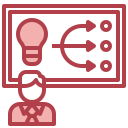Digital Tools That Enable Learning, Not Noise
Treat your LMS as mission control: clear modules, predictable checklists, automatic reminders, and integrated discussions. Consolidate links, provide templates, and surface deadlines in one place. Students should spend energy solving problems, not hunting for materials across tabs.
Digital Tools That Enable Learning, Not Noise
Right-size your sandbox: ephemeral environments for experimentation, persistent workspaces for projects, and cost controls for safety. When learners provision resources responsibly, they practice the same workflows used by modern IT teams managing shared, cloud-first infrastructure.








